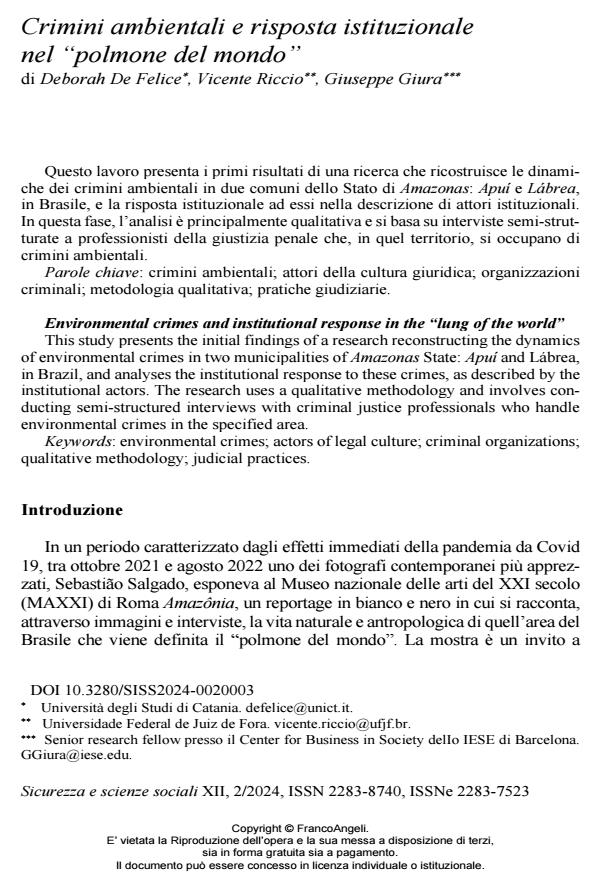Environmental crimes and institutional response in the “lung of the world”
Journal title SICUREZZA E SCIENZE SOCIALI
Author/s Deborah De Felice, Vicente Riccio, Giuseppe Giura
Publishing Year 2024 Issue 2024/2
Language Italian Pages 19 P. 22-40 File size 266 KB
DOI 10.3280/SISS2024-002003
DOI is like a bar code for intellectual property: to have more infomation
click here
Below, you can see the article first page
If you want to buy this article in PDF format, you can do it, following the instructions to buy download credits

FrancoAngeli is member of Publishers International Linking Association, Inc (PILA), a not-for-profit association which run the CrossRef service enabling links to and from online scholarly content.
This study presents the initial findings of a research reconstructing the dynam-ics of environmental crimes in two municipalities of Amazonas State: Apuí and Lábrea, in Brazil, and analyses the institutional response to these crimes, as de-scribed by the institutional actors. The research uses a qualitative methodology and involves conducting semi-structured interviews with criminal justice profes-sionals who handle environmental crimes in the specified area.
Keywords: environmental crimes; actors of legal culture; criminal organiza-tions; qualitative methodology; judicial practices.
Deborah De Felice, Vicente Riccio, Giuseppe Giura, Crimini ambientali e risposta istituzionale nel “polmone del mondo” in "SICUREZZA E SCIENZE SOCIALI" 2/2024, pp 22-40, DOI: 10.3280/SISS2024-002003